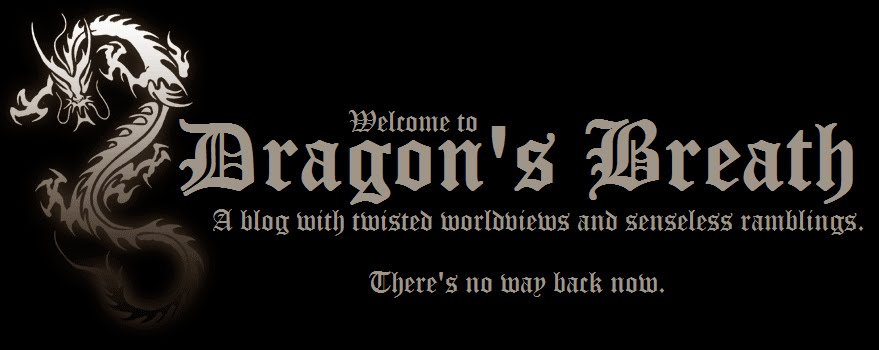A year ago, I was in the library browsing through the English section (which, considering it's a Dutch library, is not all that large). My attention turned towards a particular fantasy book, called
Diplomacy of Wolves. It looked alright, but I was about to put it back on the shelf when a recommendation by Robin Hobb caught my eye. She's my favourite author and wrote that she was very impressed with both this book and its writer, Holly Lisle. I had never before heard the name, but thought, "What the hell, I'm not paying for it, anyway".
I read it. I was impressed. Really impressed.
Holly Lisle introduced her characters, made you get to know them, and then gradually released all hell upon them. Only once before had I become so caught up in a book, which was when I read Robin Hobb's.

The only downside was that
Diplomacy of Wolves is the first part of a trilogy, and I never got my hands on its sequels. And then, about a month ago, I found
Talyn in the bookshop, and naturally bought it. It's not part of the trilogy, but rather, it's a stand-alone story, completely seperate from her other books.
Being one among several books I bought that day, it lay on the shelf, unread, for quite some time. I guess I was afraid it wouldn't be as good as the other one. Until a couple of days I decided to start on it, and I did.
Now, I had visited Holly Lisle's
website in the meantime, which has a big section on writing fiction, marking the importance of Characters, Conflict, and Never An Easy Way Out (which states, in the author's words,
"if your hero creates a 'golly-gee save-the-day gimcrack' to solve his final problem at the end of your story, IT HAD BETTER NOT WORK!"). If ever you're looking for lessons on writing fiction, or even inspiration, I'm recommending her site.
Reading
Talyn, I realized that even if I knew how she did it, the book was very enjoyable. At times, the book reminded me of Hobb, and at other times, it reminded me of a master of heroic fantasy, the late David Gemmell. Holly Lisle very quickly became my second favourite author (the first still being the brilliant Robin Hobb).
On the continent of Hyre, two great nations have been fighting a war for over 300 years; the large Eastil Kingdom, and the proud Tonk people, living in largely independent city-states called taaks. Over time, the two nations have come to several agreements, like the treatment of prisoners-of-war. Neither side is actually winning, but battles are lost or won.
Talyn is a female Tonk warrior in the magics division of Shields. In this battle, there are not just the physically fighting people (the Conventional warriors, wielding swords and shields and whatnot), but also the wielders of Magic. The Senders 'shoot' magic spells at their opponents, and Shielders try to prevent enemy spells from reaching them. Both sides have a Magics division.
But suddenly, peace has been negotiated; unwanted, confusing, disorganizing peace. Talyn, having sworn her life to the warrior saint, struggles to find a new life in this peace and in the process gets attracted to a foreign peace negotiator. He shows her a world beyond anything she ever knew...
I could say more about the plot, but then I'd spoil it. Suffice to say that this is the start of Talyn's trouble.
I read the book in about 2 days, which, considering it's got almost 600 pages, is quite remarkable. The reason is obviously the author's writing; it grips you by the throat, turns you into a mindless zombie, and won't let go until you've finished. Characters are very convincing and the plot is like a web being spun by some sort of puppet master. Conflict, in writer's terms, is everywhere. And in all honesty, I felt physically unwell during some of the scenes. That had never happened to me before, and speaks volumes of how much I was involved in this. Just thinking about re-reading it, sends shivers down my back.
In closing, I can say this is one of those books you just
need to read. It's fantasy, but never have I seen fantasy been brought to life with such realism or harshness. Whoever said that science fiction and fantasy are "escapism", clearly never read this book. And they should. As do you.
 A bitter cold wind swept across the deserted planes. The man was grateful for his padded clothing, protecting him against the grunt of the frosty climate. His beast, however, was not so lucky; growing up in a near-tropical forest some 1000 miles away never prepared it for the icy cold and he realized they had to find some shelter quickly.
A bitter cold wind swept across the deserted planes. The man was grateful for his padded clothing, protecting him against the grunt of the frosty climate. His beast, however, was not so lucky; growing up in a near-tropical forest some 1000 miles away never prepared it for the icy cold and he realized they had to find some shelter quickly.





